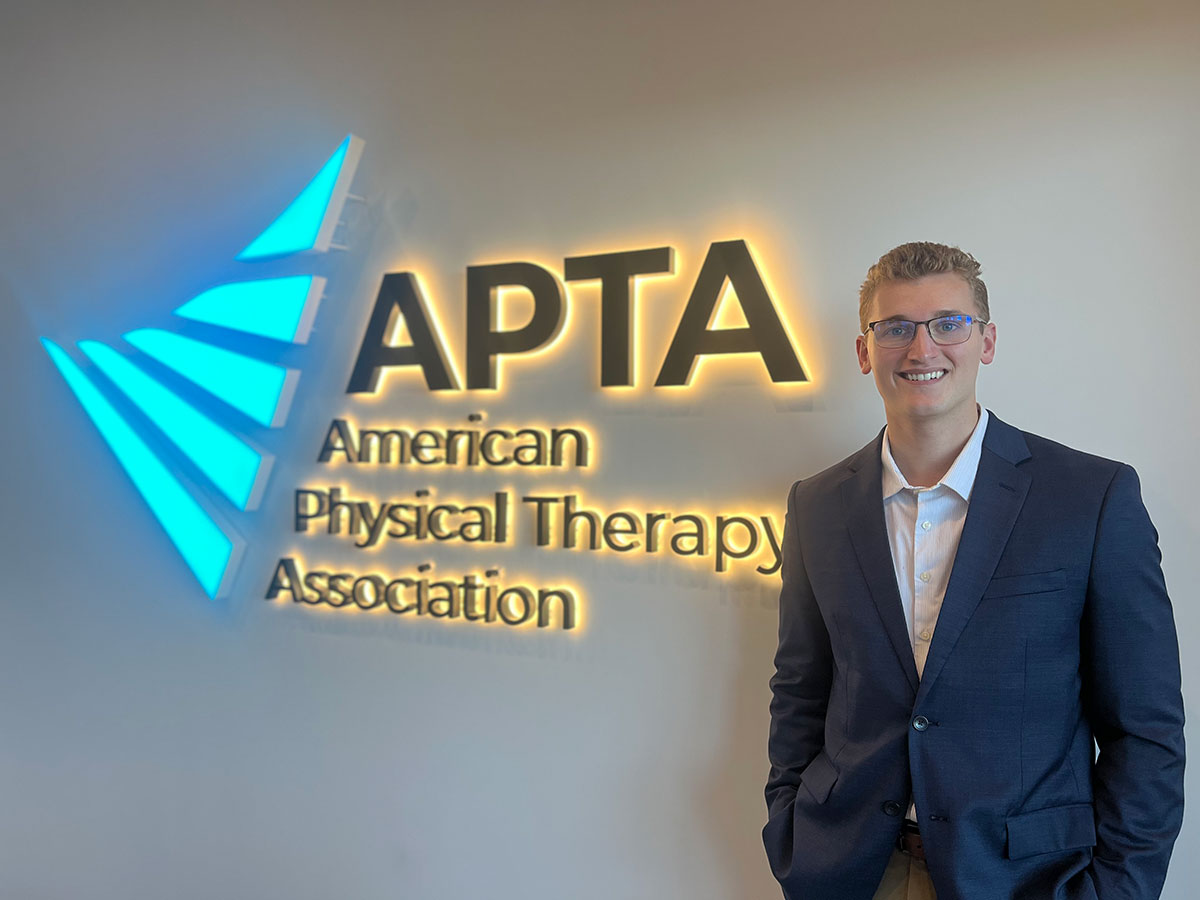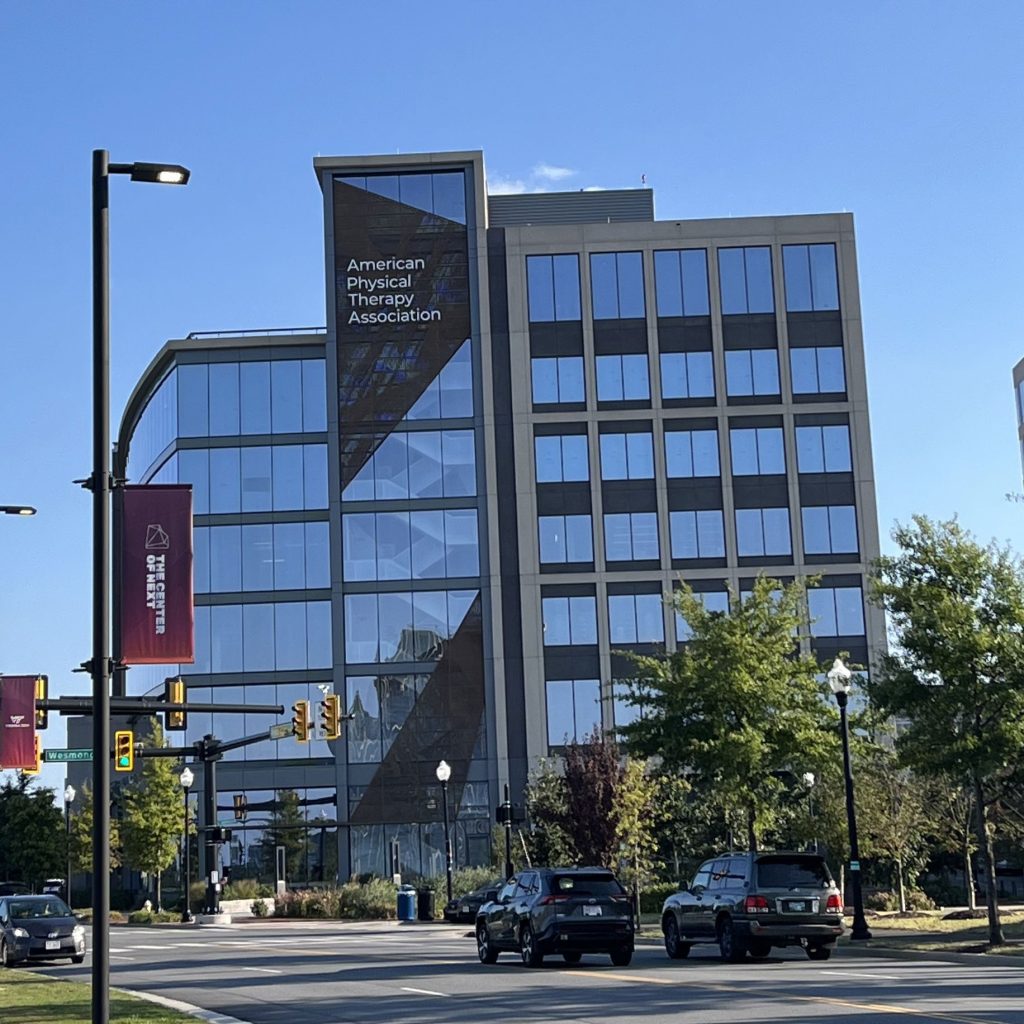
As my six-week internship with APTA’s Government Affairs team comes to a close, one thing has become clear: advocacy in healthcare demands persistence, collaboration and adaptability. Whether through federal policy shaping the Medicare fee schedule or state laws redefining PT scope, every victory reflects teamwork and tireless coordination between APTA staff, members and policymakers.
With Hill meetings slowed by the ongoing government shutdown, I had the opportunity to meet with APTA’s State Affairs and Health Policy and Payment teams. The State Affairs team works directly with APTA chapters nationwide—providing guidance, communication and resources to advance local legislative priorities. They also maintain tools such as the APTA State Advocacy Map and the article “APTA State Chapters Fuel Legislative Wins in 2025”, which highlight key 2025 state successes, such as:
- Utah – Primary Care: APTA Utah’s advocacy led to landmark legislation expanding the definition of primary care to include PTs. The law now allows health insurers to designate physical therapists as primary care providers for neuromusculoskeletal conditions.
- Montana – Workers’ Compensation: APTA Montana successfully revised the state’s definition of “treating physician” to explicitly include PTs, improving reimbursement and direct access under workers’ compensation.

At the national level, I met with APTA’s Health Policy and Payment team, which includes branches for commercial payment policy and federal regulatory affairs (CMS). The team works across both public and private payer systems to protect fair, sustainable payment and improve access to care. Current priorities include:
- 2026 Physician Fee Schedule: Ongoing advocacy for a meaningful payment update, elimination of the Multiple Procedure Payment Reduction (MPPR) and 8-minute rule, and expansion of telehealth access for PTs.
- Remote Therapeutic Monitoring (RTM): New 2026 CPT codes will enhance flexibility and recognition for PT-led digital care—an important step toward modernizing practice.
- Transforming Episode Accountability Model (TEAM): A new mandatory CMS payment model (2026–2030) linking episode-based payments to quality outcomes for select surgical procedures. Replacing CJR and BPCI-A, TEAM formally includes PTs as “TEAM collaborators,” recognizing their role across inpatient, post-acute and outpatient care in achieving cost savings and improved outcomes.
- TRICARE and CMS Issues: Continued work toward timely payments, accurate coding and equitable treatment of PTs and patients within federal programs.
- MultiPlan Lawsuit: APTA has joined a major federal antitrust lawsuit against MultiPlan (Claritiv) and several large insurers, challenging systematic underpayment for out-of-network services—a crucial fight for fair, transparent reimbursement.
Every policy decision—from Medicare to private payers—affects how we document, treat, bill and define our professional identity.
As a student physical therapist, this past week of engaging with these units has offered several key insights and reflections. As we continue advancing PT and PTA practice—particularly as primary care providers for neuromusculoskeletal health—we must not forget the importance of multidisciplinary collaboration. The strength of our profession lies not only in what we can do independently, but in how effectively we coordinate with physicians and other allied health professionals to deliver integrated, high-value care.
Our healthcare system faces considerable challenges, from workforce shortages to outdated payment models. Yet as these structural cracks become increasingly apparent, we should approach them with optimism: as opportunities for reform that strengthen access, efficiency, and patient outcomes. This experience has reinforced that advocacy is not separate from clinical care—it shapes it. Developing advocacy skills and understanding how to navigate health policy can, at times, have just as much impact on a patient’s outcome as the therapeutic treatment itself. As PTs, student PTs and PTAs, our engagement in these efforts ensures that the value of our work is recognized, reimbursed, and accessible to all who need it.
Thank you for following along throughout this journey. The past six weeks have deepened my belief that advocacy is education in action—and that every clinician has a role to play.
Feel free to reach out!

Matthew Rinehart is a graduate student in the Doctor of Physical Therapy program at the University of Wisconsin-Stevens Point. Originally from Winona, Minn., Matthew serves as the 2025 Alexa Posny Scholar, interning with the American Physical Therapy Association (APTA) at its headquarters in Alexandria, Va.
Follow along on his blog and see additional photos on Facebook.
